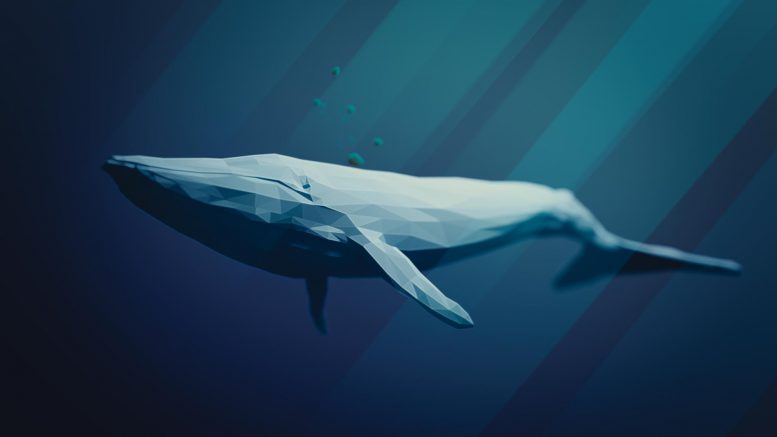
Scientists find critically endangered Antarctic blue whales returning to the sub-Antarctic island of South Georgia 50 years after near-extinction due to whaling.
An international research team led by UK scientists has revealed the return of critically endangered Antarctic blue whales to the sub-Antarctic island of South Georgia, 50 years after whaling all but wiped them out. The new study follows recent research that humpback whales are also returning to the region.
The discovery, based on an analysis of 30 years’ worth of sightings, photographs, and underwater sound recordings, is crucial evidence in learning how the species is recovering following a ban on commercial whaling in the 1960s. The findings are published today (19 November) in the journal Endangered Species Research.
Blue whales were abundant off South Georgia before the early 20th-century industrial whaling. Between 1904 and 1971, 42,698 of them were killed there. Most of these were killed before the mid-1930s.
The species all but vanished from the region — dedicated whale surveys from ships off South Georgia resulted in only a single blue whale sighting between 1998 and 2018 — but more recent surveys suggest blue whales are making a comeback.
A 2020 survey in February resulted in 58 blue whale sightings and numerous acoustic detections.
Lead author Susannah Calderan of the Scottish Association for Marine Science (SAMS), Oban said: “The continued absence of blue whales at South Georgia has been seen as an iconic example of a population that was locally exploited beyond the point where it could recover.
“But over the past few years we’ve been working at South Georgia, we have become quite optimistic about the numbers of blue whales seen and heard around the island, which hadn’t been happening until very recently. This year was particularly exciting, with more blue whale sightings than we ever could have hoped for.”
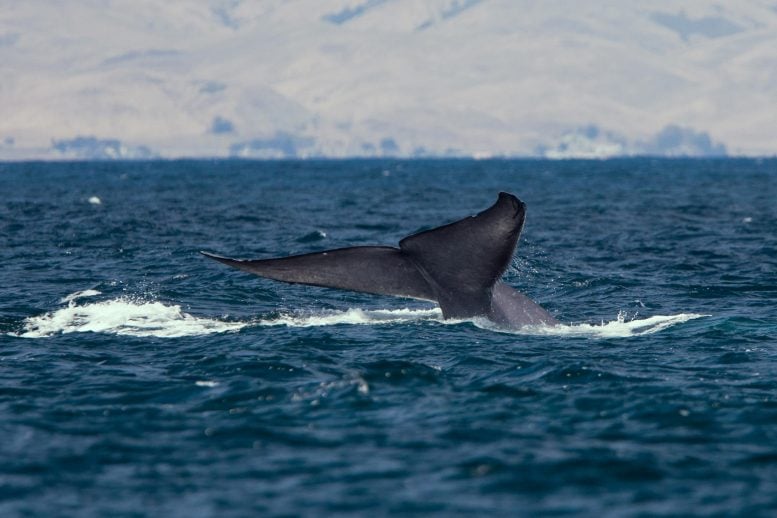
A blue whale lifting its tail flukes. Credit: “Mike” Michael L. Baird CC BY 2.0
As well as looking for whales, the researchers used listening devices, which can detect the loud, low frequency calls of whales over long distances and can also work in rough weather. The team also had records of whale sightings reported to the South Georgia Museum by mariners and tourist ship passengers, and photographs of blue whales, which enable individual animals to be identified.
In total, 41 blue whales have been photo-identified from South Georgia between 2011 and 2020, although none of these matched the 517 whales in the current Antarctic blue whale photographic catalog.
Susannah Calderan added: “We don’t quite know why it has taken the blue whales so long to come back. It may be that so many of them were killed at South Georgia that there was a loss of cultural memory in the population that the area was a foraging ground, and that it is only now being rediscovered.”
There are limited opportunities for dedicated whale surveys in the region, known for its harsh weather and inaccessibility but such surveys are crucial to the future management of South Georgia’s seas.
Co-author and whale ecologist Dr. Jennifer Jackson of British Antarctic Survey, who led the 2020 whale expedition, said: “This is an exciting discovery and a really positive step forward for conservation of the Antarctic blue whale.
“With South Georgia waters designated as a Marine Protected Area by the Government of South Georgia and the South Sandwich Islands, we hope that these increased numbers of blue whales are a sign of things to come and that our research can continue to contribute to effective management of the area.”
Reference: “South Georgia blue whales five decades after the end of whaling” by Susannah V. Calderan, Andy Black, Trevor A. Branch, Martin A. Collins, Natalie Kelly, Russell Leaper, Sarah Lurcock, Brian S. Miller, Michael Moore, Paula A. Olson, Ana Širović, Andrew G. Wood and Jennifer A. Jackson, 18 November 2020, Endangered Species Research.
DOI: 10.3354/esr01077
The team’s analysis was funded by South Georgia Heritage Trust and Friends of South Georgia Island, who also funded the collection of some of the data used. Acoustic and sightings data come from expeditions led by British Antarctic Survey, with funding from the Darwin Initiative and EU BEST; from the Swiss Polar Institute Antarctic Circumnavigation Expedition (funded by the ACE Foundation, Ferring Pharmaceuticals and the Australian Antarctic Division), and Government of South Georgia and South Sandwich Islands.
This international collaboration includes scientists from the SAMS, BAS, Australian Antarctic Division, US NOAA, International Fund for Animal Welfare, Government of South Georgia and South Sandwich Islands, South Georgia Heritage Trust, University of Washington, Texas A&M University at Galveston, Woods Hole Oceanographic Institution.

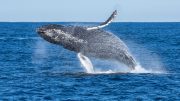

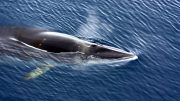

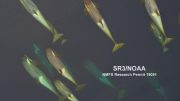
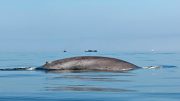
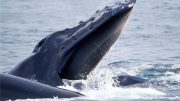
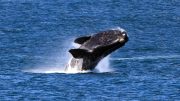
Be the first to comment on "Blue Whales Return to South Georgia After Near Extinction From Whaling 50 Years Ago"